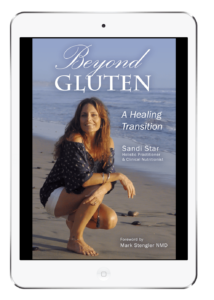24 Jan Gluten and Cross Reactive Foods
Are you 100% gluten-free, yet you still suffer from symptoms related to gluten?
If so, it could be that you’re experiencing Cross-Reactivity with foods that do not contain gluten but your body reacts to them as if they do. Cross-Reactivity is the ability of an antibody to react with similar antigenic sites on different proteins.
There are a number of naturally gluten-free foods such as cheese, chocolate and coffee, which contain proteins so similar to gluten that your body confuses them with gluten. When you eat these foods, your body and immune system react as if you just ate a bowl of whole-wheat pasta.
It’s estimated that at least half of those who are gluten intolerant are also sensitive to dairy (cheese, yogurt, milk and butter) due to its cross-reactivity with gluten.
The protein in coffee is the most common cross-reactor to gluten. Because it is the protein in the coffee that is the trigger, switching to decaf coffee does not solve the problem. In fact decaf coffee is heavily processed so you don’t want to drink it in any case.
Below is a list of common foods that cross-react with gluten:
- Amaranth
- Barley
- Buckwheat
- Chocolate
- Coffee
- Corn
- Dairy, i.e. milk and cheese (alpha-casein, beta-casein, casomorphin, butyrophilin, whey protein)
- Egg
- Hemp
- Millet
- Oats
- Polish wheat
- Potato
- Rye
- Rice
- Sesame
- Spelt
- Sorghum
- Soy
- Tapioca
- Teff
- Yeast
If you are off the gluten and are still having health issues, try eliminating the above foods for at least two months and see if your symptoms improve. Also, it’s important to make sure you’ve done the Four R’s to heal the gut. Then, after two months you may reintroduce the above foods one at a time to determine which ones are causing cross-reactions, if any at all.
An easier way to find out exactly what foods you are reacting to is to run an IgG Panel (food intolerance). This way you don’t have to play the guessing game. The IgG Panel we use if with Great Plain Labs and covers 92 foods along with yeast, candida levels and coffee.
If you determine that there are foods that are cross-reactive for you, the treatment is to permanently remove these foods from your diet in addition to gluten. Remember, even though the cross-reactive foods do not actually contain gluten, your body thinks they do and therefore cause inflammation and damage to your body equal to that of gluten.
Gluten free is a good baseline in starting to heal your gut however in most cases it only part of the whole protocol. Once the body is “confused” it’s important to look at healing the gut and calming the inflammation down. Inflammation is the bottom line and causes 80% of disease. Our focus here is finding the cause of and addressing it. Starting with looking at the foods is key!


